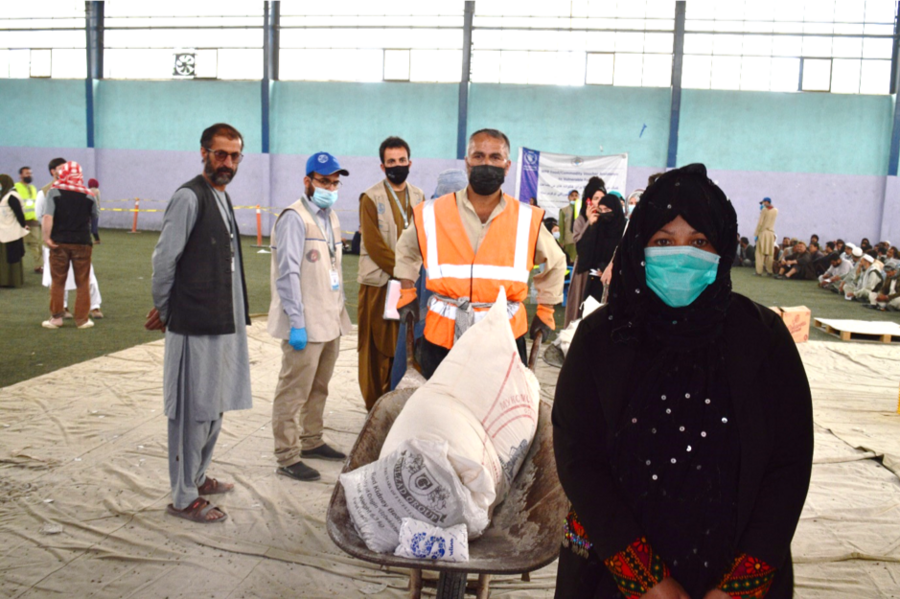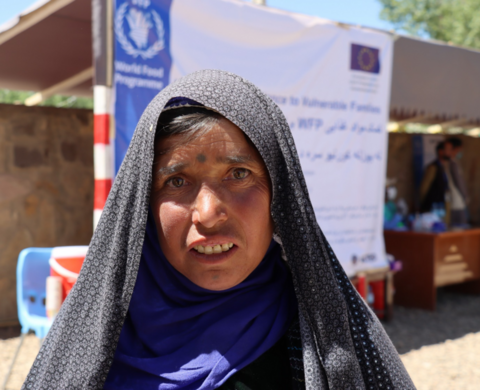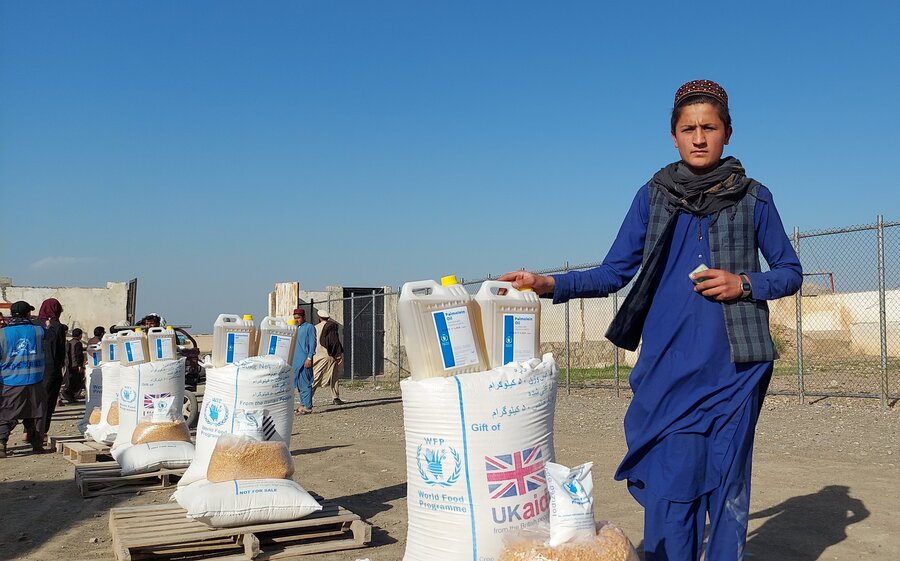‘Every day I pray for food assistance for us’: UK funding brings relief to families in Afghanistan

Alia stands in line at a WFP food assistance site in Kabul, awaiting the food basket that will be a lifeline for her family of nine.
“Since the government situation changed last year, unemployment has increased, and people’s economic situation has deteriorated,” she says. “Because the economy is not good, people come here to receive food. If there wasn’t any aid, all these people would die because of hunger and poverty.” With support from UK Aid and other donors, the World Food Programme is able to reach families such as Alia’s with general food distributions and cash-based transfers.
'Keep the world's attention on Afghanistan,' warns EU humanitarian chief

Alia has four sons and three daughters to care for. Prior to August 2021, Alia ran a beauty parlour. However, with the cultural shift against women after the fall of the country and the collapse in the economy, Alia is no longer able to work at her small business, while her husband can no longer work as a mechanic because of health problems.
“Without this aid from WFP, we wouldn’t have any income at all,” says Alia. “We had nothing from the tenth day of Ramadan and every day I pray for food assistance for us. My children now attend school on one day and then work on the streets the next to help us afford food. We feel helpless. If we did not feel helpless, we would not do this.”
An economy reeling from a multi-layered crisis

Facing a plummeting economy, back-to-back drought seasons, soaring food prices and a global pandemic, Alia’s family are among many Afghans who’ve turned to support from humanitarian aid organizations, particularly during the lean months prior to June planting season. While the upcoming harvest is expected to bring some relief, many families have plunged into debt over the past several months, mortgaging land and other assets to buy food to bridge the gap.
According to the global standard for food insecurity (the IPC or Integrated Food Phase Classification), nearly 20 million people are facing food insecurity, with 6.6 million facing acute hunger. Thanks to funding from UK Aid and other donors, this year. WFP has reached more than 17 million people with emergency food and nutrition support, as well as cash-based transfers that allow people the freedom of choice to address their families’ most urgent needs.
“Support from UK Aid for desperate Afghans has been invaluable,” says Mary-Ellen McGroarty, WFP’s Country Director for Afghanistan. “Not only is Afghanistan dealing with a number of challenges within its borders, but the global food supply issues are worsening due to the Ukraine conflict, and rising prices are squeezing relief efforts and creating an additional weight to people’s economic burden. Afghanistan’s economy is reeling from a multi-layered crisis, and we are so grateful to the UK for its role in helping people like Alia and her family feel a measure of hope for their future.”
'Season after season of loss'

In Khost Province in the east of the country, 13-year-old Asefullah says his family is focused solely on survival – only his older brother has a job to support the family of seven. He makes enough to buy bread and nothing else. Asefullah says the food from WFP has helped keep his family alive for the past nine months. “If we didn’t receive assistance, we would face many problems,” he says.
“We are seeing season after season of loss,” says McGroarty. “This is something that stays with me and with all our staff working across the country. People have lost livelihoods; their sons and daughters have lost their childhoods. Girls are at risk of losing so many educational gains that were hard-won victories.”
She adds: “We need to nurture them, otherwise who will be the future midwives, teachers, and doctors? WFP is committed to supporting the people of Afghanistan in every way we know how—from emergency food and cash distribution to resilience efforts with local farmers, skills training for women to school feeding for children. Our donors are the true backbone to enabling our work to continue in the months ahead.”
WFP requires US$ 1.4 billion to support around 23 million Afghans until the end of 2022. Read more about WFP’s work in Afghanistan.
